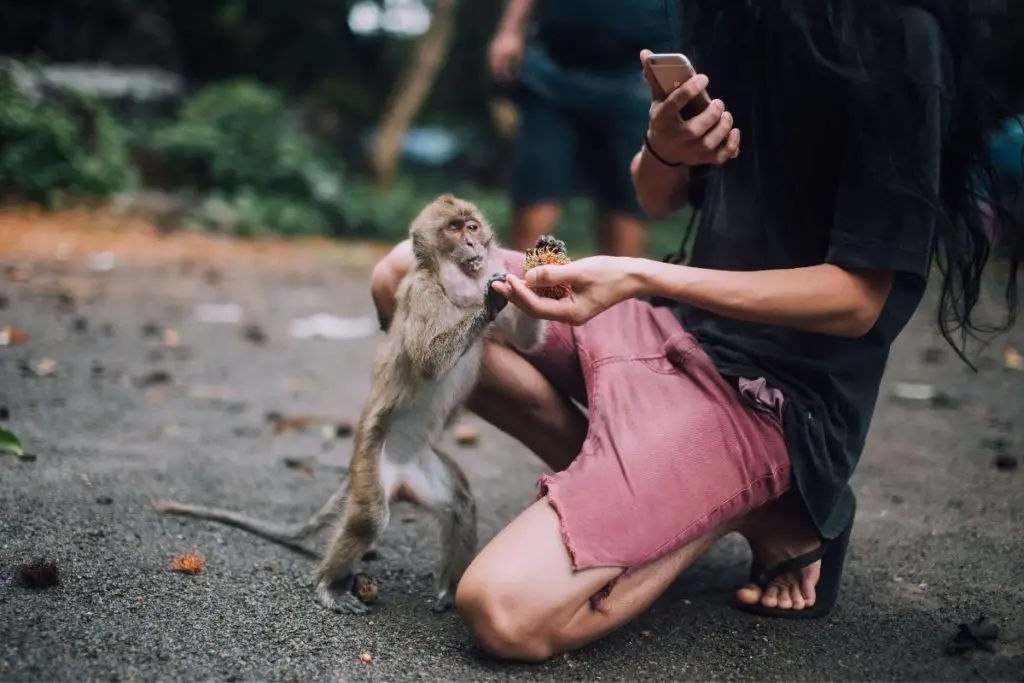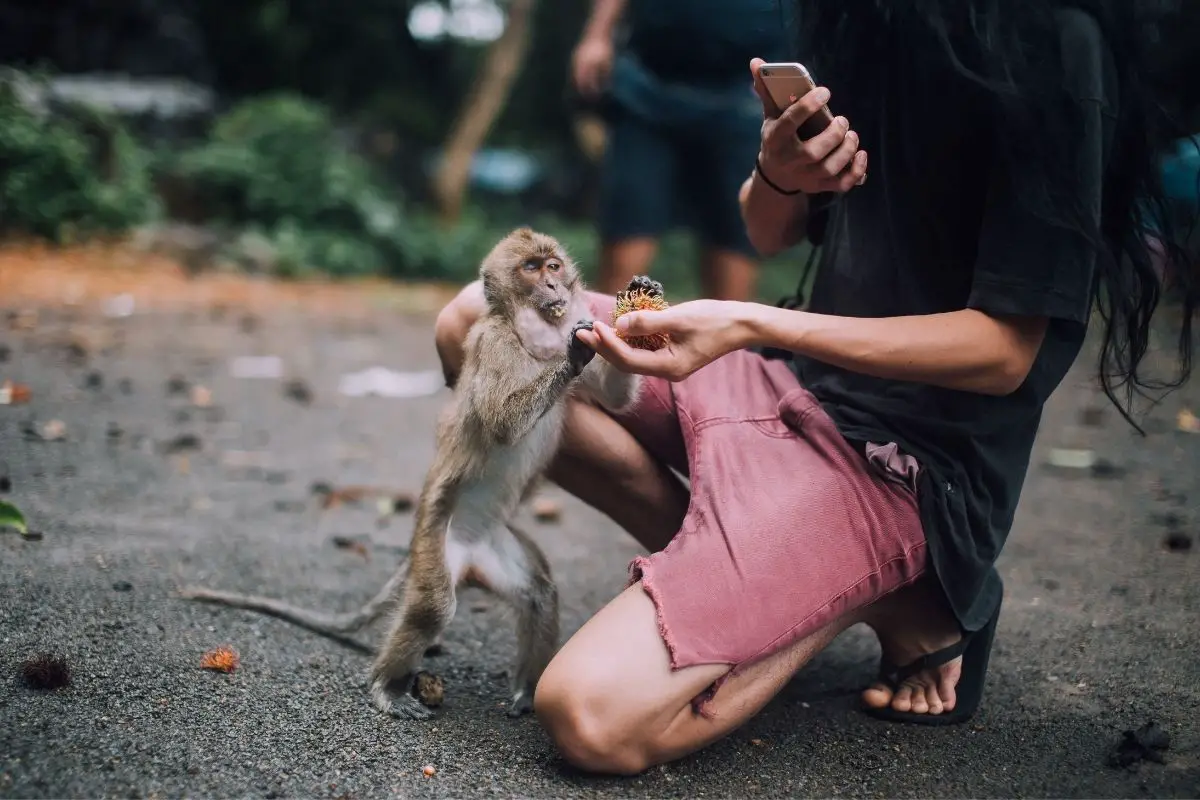Knowing how to take care of your pet monkey is essential, but so is understanding the risks. Is it dangerous to have a pet monkey? What are the dangers and health risks of having one? Is there anything you should know before getting a pet monkey?
Let’s start with the most important one;
Is it dangerous to have a pet monkey? Yes, it is dangerous to have a pet monkey. Monkeys may carry zoonotic diseases and parasites that can infect humans as well as viruses such as Herpes B virus. Monkeys are also aggressive and bite, and let’s not forget they are illegal in most places.
There are ways to mitigate the risks, of course, but you should really know what you are doing if you want to safely own a pet monkey. In this article, we are going to discuss the risks, including the hidden ones, of owning a pet monkey and how to mitigate them.
Contents
Why is it dangerous to have a pet monkey?

There are many risks to owning a pet monkey, these include:
- The legal risks
- The safety risks
- The health risks
- The ethical risks
Let’s quickly discuss each of these risks:
The legal risks
It’s illegal to own a monkey in most states. You can learn where is it legal to own a monkey here, but even if you do buy it legally, you may purchase a monkey in one state, attempt to bring it into your home state only to discover that you have violated a state rule and must forfeit your monkey and pay a large penalty.
For example, you may live in Arizona where it’s actually legal to buy monkeys and get your monkey legally, but then a few years down the line, you move to the neighboring California where it’s illegal to even bring your monkey to the state.
If you do get caught, you are going to be hit with :
- A fine of $500 – $10,000, plus the costs of removing, caring, or storing for the animal.
- A Criminal
- A misdemeanour charge
Fortunately, in California, unlawful possession of exotic animals is seldom punished. However, the state of California still has the power to confiscate any illegal pet from you.
The safety risks
- They’re adorable and kind while they’re babies, but as they reach puberty (which at about 3 years old), their attitude will take a turn for the worse quickly and aggressively.
- Because they are unable to handle their natural urges, many of these pets will become unpredictable and dangerous. A monkey can live to up to 40 years old, which is a very tough commitment for almost everyone.
- Monkeys are extremely filthy. They will pollute your house and make it stinky! Monkey activities in a human home include urinating all over the place, defecating anywhere, and “poop painting” your walls with feces and urine.
- Diapers may seem like the answer, but even if, by some miracle, you could get your monkey to wear one, they frequently induce painful boils and skin problems, and they hamper tail musculature development.
- This will simply make your house a disease magnet, which puts your family’s safety at risk.
- Even worse, monkeys bite! Monkeys bite and their bites are more common than you think. Monkeys bite because they are hungry, scared, angry, or for no reason whatsoever.
They can make it extremely hard to get them off of you and cause very serious injuries; especially when they realize that biting is a successful method for getting their food and will continue doing so.
This simply makes monkeys dangerous to live with.
The health risks
Monkeys can spread parasites and zoonotic diseases that may infect humans as well as viruses such as Herpes B virus. Even if your monkey seems pretty healthy, you should always assume that it is carrying zoonotic diseases.
The ethical risks
Monkeys are taken from their mothers as newborns (at about a week old) to be sold as pets to humans. Not only is this extremely stressful for the infant, but it’s also traumatic for the mother who will be bred repeatedly until she dies in the same way.
A purchase of monkeys fuels the horrendous international, cruel, and illegal exotic pet trade. It supports breeders of primates to keep going with their cycles, and poachers to continue murdering adult primates so they may sell their children. You should never contribute to this tragic supply and demand cycle.
Even worse, most monkeys purchased can end up being euthanized.
Can you live a happy life with a pet monkey?
There are a few documented instances of monkeys being well-trained and living alongside people the remainder of their lives without causing any problems. However, in most situations, both humans and monkeys are at risk.
Monkeys are not suited to be pets because they require full commitment throughout their lives. They never grow up and mature like human children do. In other words, they are essentially permanent toddlers who require constant care and attention for the rest of their lives.
Related Questions
Is it ethical to have a pet monkey?
Most people and organizations consider it unethical to have a pet monkey. They are wild animals and should live in the wild, not as pets. Owning a pet monkey is cruel because it fuels the unlawful and horrible exotic pet trade and it prevents the monkeys from living a normal life amongst their peers.
Can you have a small monkey as a pet?
You can have a small monkey as a pet, but it’s still unethical to keep one because they are wild animals and should live in the wild, not as pets.
It is legal in some states, but not all. You can learn about the best monkey breeds as pets here.
Helpful Resoures
If you like this article, please share it!

